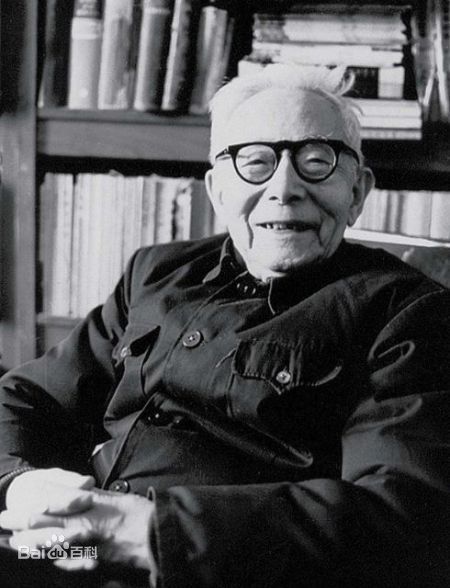<h1 class="pgc-h-arrow-right" data-track="1">
</h1>
Zhu Yongxin pressed:
Jin Kemu (1912-2000) was a native of Shouxian County, Anhui Province. He was a professor at Wuhan University and Peking University, and a member of the National Committee of the Chinese People's Political Consultative Conference. His translations include the ancient Indian poet Kalidasa's "Cloud Messenger", "Selected Texts of Ancient Indian Literary and Art Theory", "Selected Ancient Indian Poems", and his treatises include "History of Sanskrit Literature", "Collection of Comparative Culture", academic essays and essay collections. This article was originally published in the "Reading Music" column of xinmin evening news edited by Mr. Cao Zhengwen, and later included in the book "100 Famous Artists Talk about Reading" edited by Cao Zhengwen. This article introduces Mr. Xu Guozhang's reading method when studying linguistics. Mr. Xu broke through three levels, using different reading methods, the first level is "beheading with one knife", the second level is "cutting the abdomen and digging the heart", and the third level is the "solution" that even he did not understand. Of course, to do learning, it is inseparable from reading.

What is philosophy of language? Finding original works, talking about theories, and checking factions are all the business of scholars and experts. Another way to answer is to take and use. In ancient times, the so-called "borrowing" was literally translated into modern words as looking in the mirror. Using one use is different from looking in the mirror. As a philosophical view of language, the philosophy of language can be compared with foreign families to check our families. This is much more difficult than the general evaluation. Someone is willing to overcome this difficulty, he is Professor Xu Guozhang.
Professor Xu Guozhang's speech on Chinese language philosophy requires three levels in a row. The first level is xu shen's "Explanation of Words" against his benja. The method he used was to behead with a knife, then dissect it, and copy down and analyze a part of the "Preface" sentence by sentence. The second level is to deal with Ma Jianzhong's "Ma's Wentong" in modern times. This time it is to dig the heart out of the stomach and compare the Chinese system of books with the "Universal Rational Grammar" (Latin grammar system) in Eighteenth-century Europe. In addition to philology and grammar, there is a third hurdle, which Professor Xu told me in 1991 was Liu Xun's "Wenxin Carved Dragon". This is medieval literature and art, and he wants to grasp the key points to analyze, which is for the life of the "Chinese Chinese Wen" in 1992. I haven't seen the article yet, and I don't know what new "solutions" have been used. The above two articles have long been published and included in his collection of essays" Xu Guozhang on Language (Foreign Language Teaching and Research Press, 1991 edition). There are also wonderful articles that discuss other linguistic schools in the collection, sandwiching between them. There are also translations, and excerpts from his teacher Jin Yuelin's fragments on language are interpreted. His method of breaking through the barrier is obviously adhering to the teacher's line, inevitably the number of British analytic philosophy, grasping the specific objects of the article of analysis, from small to large, the language must be based, this is an advantage, but it has also become a box. If there is a big box, there is a box, so there are other ways to check the language philosophy that Xu, Ma, and Liu, the three old predecessors themselves will not flaunt. This is within their books, and it can be outside their books. Professor Xu only took the lead, not made a conclusion. He is more focused on language, and he can also focus more on philosophy to explore.
The twentieth century is almost over. Looking back, the new scientific trends that affected human thought, in addition to physics and biology, were linguistics and psychology, with intense changes, a variety of colors, and a huge impact, which was very different from the nineteenth century. Many claims have spread into the realm of common sense. Professor Xu's book covers almost all the linguistic theories of the twentieth century. Linguistics does not have to be learned by everyone, but the view of language is something that everyone should care about. Who can get out of language? Doesn't Zen Buddhism still have a large number of Quotations?